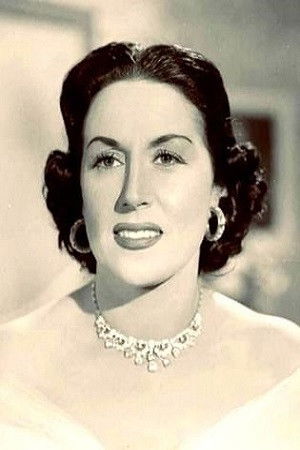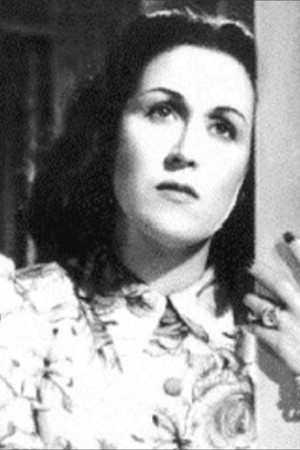Leila Mourad (1918-1995)
Alias:
Layla Mourad
ليلى مراد
ليليان زكي مراد موردخاي
Birthplace:
Egypt
Born:
February 17, 1918
Died:
November 21, 1995
Leila Mourad or Layla Morad (Arabic: ليلى مراد; February 17, 1918 – November 21, 1995) was an Egyptian singer and actress, and one of the most prominent superstars in Egypt and the entire Arab world in her era. Born Lilian Zaki Ibrahim Mourad to an Egyptian Jewish family, known for their patriotism in 1918 in the El Daher District in Cairo, she later changed her name to Leila Mourad as a stage-name. She made her first stage appearance, aged nine, at the Saalat Badi'a, one of Cairo's most successful Music Halls. The theatre had been founded in 1926 by the actress and dancer Badia Masabni, who became Mourad's patron. Her first film appearance, aged fifteen, was in the 1932 " Al-Dahaaya " (The Victims) which had originally been made as a silent film. Her song, The Day of Departure, was added as part of the transformation of the production into a "talkie". She was trained by her father and Dawood Hosni, who was also Jewish. Hosni had composed the first operetta in the Arabic language, and he composed two songs for Leila: Hairana Leh Bein El-Eloub (Why can't you choose from among lovers), and Howa el dala'a ya'ani khessam (Does daliance mean avoiding me?). Further success came when the prominent Egyptian composer Mohammed Abdel Wahab heard her singing and gave her a role in his film Yahia el Hob (Viva Love!) in 1938. In the six years following the success of Yahia el Hob she made five best selling films with director Togo Mizrahi, becoming Egypt's top actress. In 1945 she made Layla Bint al-Fuqara ("Layla, daughter of the poor") directed by Anwar Wagdi whom she married shortly after. She went on to make a further 20 films of which the most outstanding is Ghazel el-Banat ("The Flirtation of Girls"), also directed and co-starring Wagdi. It also featured Nagib al-Rihani and Abdel Wahab in their last appearances on film. In 1953, she was selected as the official singer of the Egyptian revolution. Shortly thereafter, a rumor that Mourad had visited Israel and donated money to its military raised suspicions of spying and caused some Arab radio stations to boycott her. She denied these allegations, no proof was found; and the charges against the singer were eventually dropped. Her decision to retire, aged 38, came with the failure of her last film, Al Habib al Majhoul (The Unknown Lover), the banning of her song, With Unity, Order, and Work, praising the Free Officers 1952 revolution and the outbreak of the 1956 war. Despite the immense popularity of her films, her singing career was over-shadowed by Um Kulthum who dominated Egypt's musical landscape. Leila Mourad made a few brief reappearances during Ramadan in 1970, when she was scheduled to read Salah Jaheen's "Fawazeer Ramadan" (Ramadan' puzzles), a daily traditional radio program held during the Holy month of Ramadan. Leila Mourad died in a Cairo hospital in 1995.







